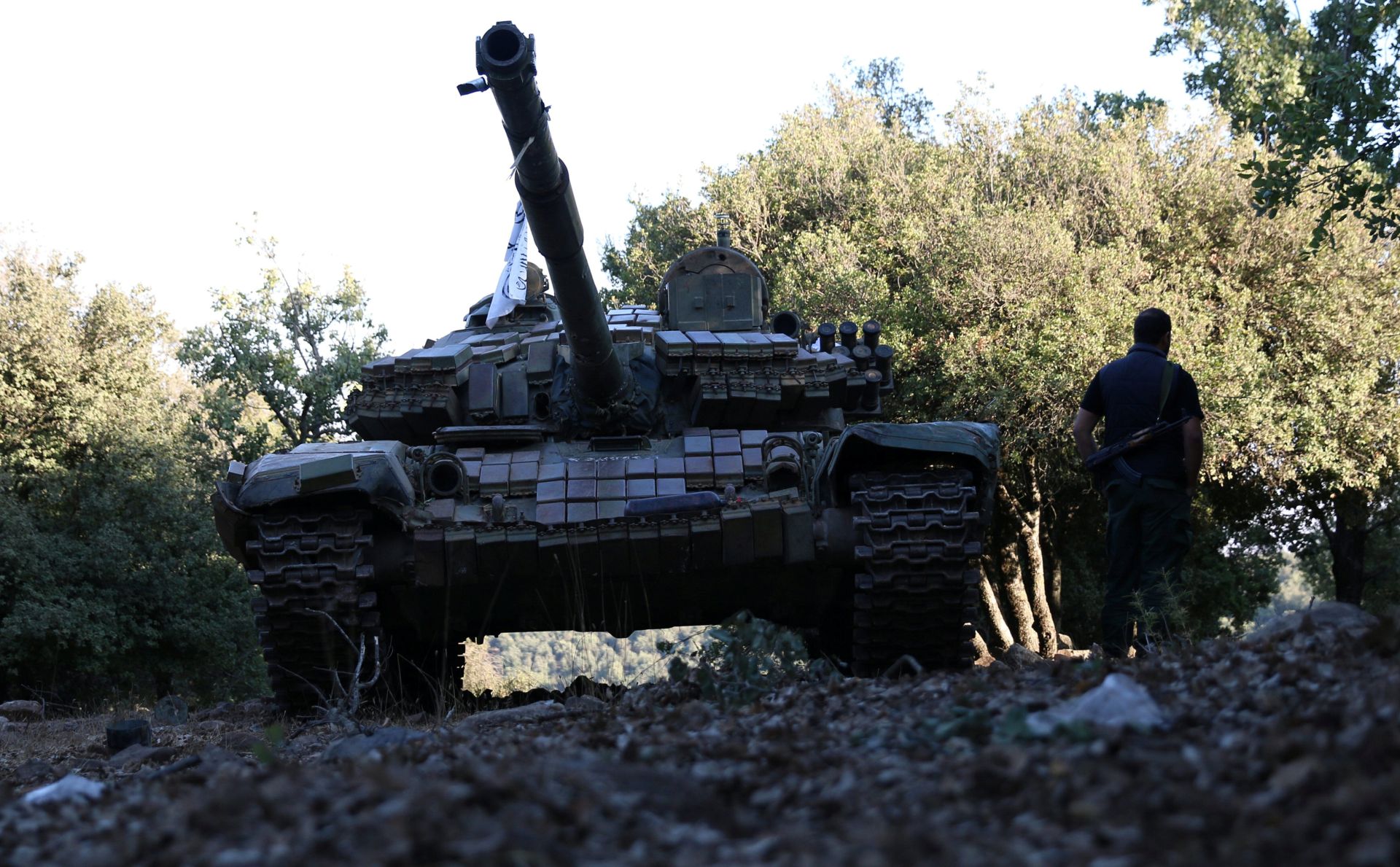Syria’s ceasefire was hanging by a thread on Sunday, after tensions escalated between Moscow and Washington over a US-led coalition air strike that killed dozens of Syrian soldiers battling jihadists.
The truce saw violence drop across Syria for several days after it came into force Monday, but fighting has since erupted on several fronts and besieged civilians are still waiting desperately for promised aid deliveries.
The ceasefire’s co-sponsors, Russia and the United States, have traded accusations over the fraying deal, with relations strained even further after the US-led raid killed scores of Syrian soldiers on Saturday.
The Syrian Observatory for Human Rights said at least 90 soldiers were killed in the strike. Damascus ally Moscow put the death toll at 62.
The Syrian army said the raid had allowed Islamic State group fighters to gain ground around the key eastern airbase of Deir Ezzor, but a military source said government forces were back on the offensive Sunday.
“The army has retaken most of its positions on Jabal Therdeh with Russian and Syrian air support,” the source said, referring to a hilltop overlooking the base.
Retaking them is vital to prevent IS using them to fire on army aircraft taking off from or landing there.
On Sunday, IS said it shot down a Syrian warplane near Deir Ezzor. Syrian state news agency SANA confirmed a plane had been shot down there and its pilot killed, but did not say who was responsible.
The base and adjacent government-held neighborhoods of Deir Ezzor city have been under siege since 2012 and have been dependent on resupply by air.
‘Bad omen’ for ceasefire
Observatory head Rami Abdel Rahman said Russian warplanes pounded IS positions around Deir Ezzor late Saturday as fierce clashes broke out between IS and forces loyal to President Bashar al-Assad.
At least 38 jihadist fighters were killed and clashes were ongoing, Abdel Rahman told AFP.
Hours after the coalition strike on Saturday, the Pentagon admitted US-led pilots may have hit Assad’s forces but said that they “believed they were striking a Daesh (IS) fighting position.”
The statement said coalition forces “would not intentionally strike a known Syrian military unit.”
Australia, which said it was one of several coalition countries whose aircraft took part, offered its “condolences to the families of any Syrian personnel killed or wounded.”
A statement by Russia’s foreign ministry on Sunday said it was “deeply concerned” about the incident.
“The actions of the pilots — if they, as we hope, were not taken on orders from Washington — fall between criminal negligence and direct pandering to IS terrorists,” it said.
It again called on Washington to force Syrian rebels to sign on to the truce, warning that “otherwise, the realization of Russia-US agreements… could be put in danger.”
An emergency UN Security Council meeting called by Moscow to discuss the attack ended early on Saturday after an exchange between the US and Russia reminiscent of Cold War-era verbal jousting.
US ambassador Samantha Power said Washington regretted the loss of life, but that Moscow’s request for the meeting was a “stunt”.
And Russian ambassador Vitaly Churkin accused the US of violating agreements that it would not target Syrian army positions.
He called the strike a “bad omen” for the US-Russia deal on halting the war in Syria, which has killed more than 300,000 people since it erupted in March 2011.
“These strikes endanger everything that has been done so far by the international community” to end the war, foreign ministry spokeswoman Maria Zakharova said.
Fighting on multiple fronts
The truce agreement came into force September 12, with the Britain-based Observatory reporting a drop in violence across all major fronts in the country where IS was not present.
But fighting began to build up again late last week, including in the central provinces of Homs and Hama, and the rebel-held eastern suburbs of Damascus.
The front line remained quiet in divided second city Aleppo, but civilians have yet to see any aid deliveries — a key component of the truce deal.
The head of Fateh al-Sham Front, which changed its name from Al-Nusra Front after renouncing its ties to Al-Qaeda, said late Saturday that “neither we nor rebel groups will allow the siege of Aleppo to continue.”
In an interview broadcast by Al-Jazeera television, Abu Mohamed al-Jolani said negotiations were under way for anti-regime groups to band together in a single organization.
Such a merger would throw a major wrench in the US-Russia deal, which foresaw cooperation between the two world powers against jihadist groups, including Fateh al-Sham as well as IS, if the truce holds for a week.









